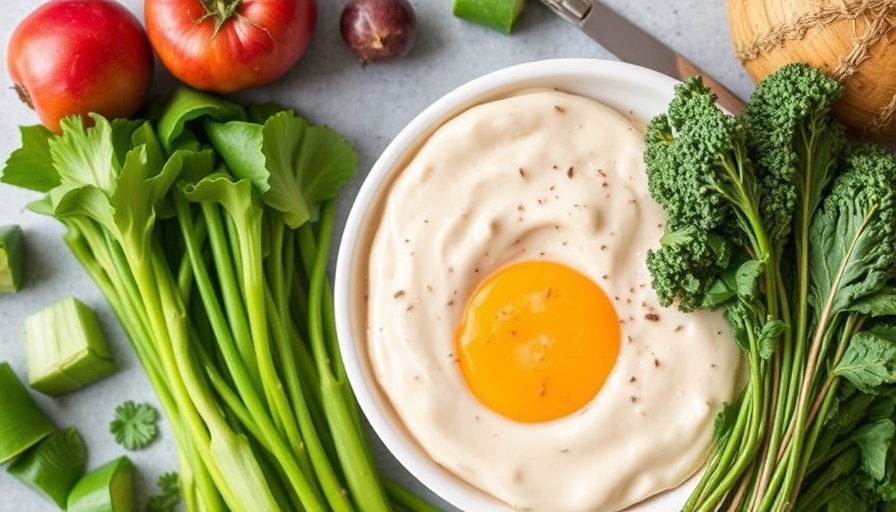
The Connection Between Inflammation and Sleep Disorders
In today's fast-paced world, many individuals face sleep disturbances not just due to stress or environmental factors but also as a direct consequence of chronic inflammation. This condition, often overlooked, can disturb the delicate balance of neurotransmitters in the brain, leading to increased levels of anxiety and deteriorating sleep quality. Understanding this connection is crucial for finding effective solutions for those who often find themselves tossing and turning through the night.
Unlocking Better Sleep Through Diet
The power of food goes beyond mere sustenance; it plays a pivotal role in our mental health and overall well-being. Incorporating a plant-based diet, specifically rich in anti-inflammatory foods, can be a game changer in addressing sleep issues. Here are several key foods known for their anti-inflammatory properties:
- Avocados: These creamy fruits are not only delicious but packed with omega-3 fatty acids, vitamins B and E, and tryptophan—an essential amino acid critical for mood regulation.
- Bananas: Rich in tryptophan, bananas can support serotonin production, enhancing relaxation and improving sleepiness.
- Cruciferous Vegetables: Kale, broccoli, and Brussels sprouts are loaded with vitamin K and omega-3 fats, which help combat inflammation effectively.
- Pumpkin Seeds: These tiny powerhouses are rich in magnesium and antioxidants that help soothe nerves and promote restful sleep.
- Decaffeinated Green Tea: Highlighted for its calming effects, decaf green tea can lower cortisol levels and contains theanine, helping to ease tension.
- Kiwi Fruit: A surprising ally, kiwi is high in serotonin which contributes to better sleep quality.
- Sweet Potatoes: Eating sweet potatoes can offer beta-carotene, which has been linked to reducing inflammation-related issues.
- Sunflower Seeds: These seeds are a wonderful source of vitamin E that can lower inflammation markers like CRP.
- Chia Seeds: High in omega-3s and fiber, chia seeds support overall health and may mitigate inflammation.
Understanding the Hallelujah Diet
The Hallelujah Diet advocates for a raw, plant-based lifestyle designed to minimize inflammation. By emphasizing whole foods—fruits, vegetables, nuts, and seeds—this diet asserts that reducing inflammation can naturally lead to improved health outcomes, including better sleep. The emphasis on nutrient-rich foods may not only enhance physical vitality but also mental calmness, creating a holistic approach to health.
Future Insights: The Growing Understanding of Nutrition and Mental Health
As research continues to evolve, we may see a significant shift in how nutrition is integrated into mental health treatment. The relationship between inflammation, diet, and brain health is becoming increasingly recognized, paving the way for food-based interventions to complement traditional therapies for insomnia and anxiety.
Practical Tips for Everyday Life
Incorporating these anti-inflammatory foods into your diet doesn't have to be an overwhelming endeavor. Here are practical actions you can take today:
- Start your day with a smoothie made from kiwi, spinach, and banana.
- Include roasted sweet potatoes in your meals as a healthy carb option.
- Snack on pumpkin seeds or sunflower seeds to stave off cravings while reaping health benefits.
- Opt for decaffeinated green tea instead of caffeinated beverages in the evening.
Embracing Change for a Healthier Tomorrow
As the understanding of the impact of inflammatory responses on sleep continues to grow, it is crucial to acknowledge the role that our diet plays in shaping our mental health. Women, in particular, can benefit from embracing these dietary changes, fostering better sleep quality and reduced anxiety. Making small adjustments today could lead to significant improvements in your sleep and overall well-being.
 Add Row
Add Row  Add
Add 




Write A Comment